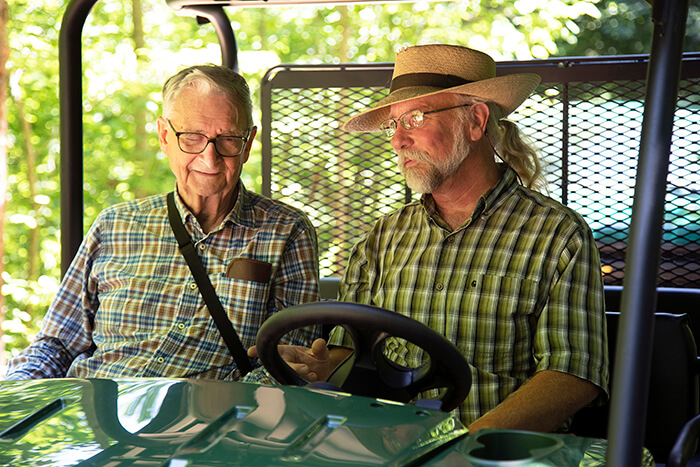Often called the “father of biodiversity,” celebrated naturalist and Birmingham native E.O. Wilson, who passed away in December 2021, believed that Alabama’s natural biodiversity holds clues for the world and its future.
By Bill Finch
E.O. WILSON LEFT A LEGACY for the world. But he also left a challenge for that corner of the planet where he had his first encounters with nature.
The discovery and celebration of biodiversity was central to his work. Nature for Ed wasn’t just beautiful scenery. Nature was first and foremost its species, each and every one.
As Ed gave people new ways of thinking about the world, he gave the world a new way of thinking about Alabama.
It may seem odd that the modern concept of biodiversity was born in a region that historically has struggled with understanding and valuing its own diversity.

But Ed believed Alabama could become a model for understanding diversity, because he understood the profound effects that state’s exceptional natural riches had on him as he was growing up. Concepts like biophilia were his way of articulating the impulses that drove him as a boy to feel the muscular resistance of snakes in his hands, to arrange the wings of butterflies, to study how the minute habits of ants could rock an entire forest.
He was fascinated by the growing recognition that Alabama is the continent’s center of aquatic life, the center of continental tree diversity, the center of turtle diversity in the Western hemisphere, as if this helped explain and confirm the bent of his life.
He believed that understanding the biodiversity of Alabama could shape the future of the state, even as it had shaped his future, and as it would shape the world.
He had access to every great natural area in the world. But again and again he turned his attention to the national center of tree diversity in Alabama’s Red Hills, to Alabama’s pineland bogs, among the world’s great centers of carnivorous plant diversity. He declared that the Paint Rock Valley in northeast Alabama should become a world center of research into how forests and ecosystems work.
For his 88th birthday, he wanted nothing more than a chance to prospect for ants in the Mobile-Tensaw Delta. He swatted his net through the reeds, chuckling as he gathered ants that appeared out of nowhere. It was executed like a serious scientific endeavor. But on that day he was a happy boy tromping through the marsh, discovering Alabama diversity as if for the first time.
Bill Finch currently serves as founding director of Paint Rock Forest Research Center. Principal Conservation Science Advisor to the E.O. Wilson Biodiversity Foundation, he has been involved in Alabama conservation for more than 30 years.